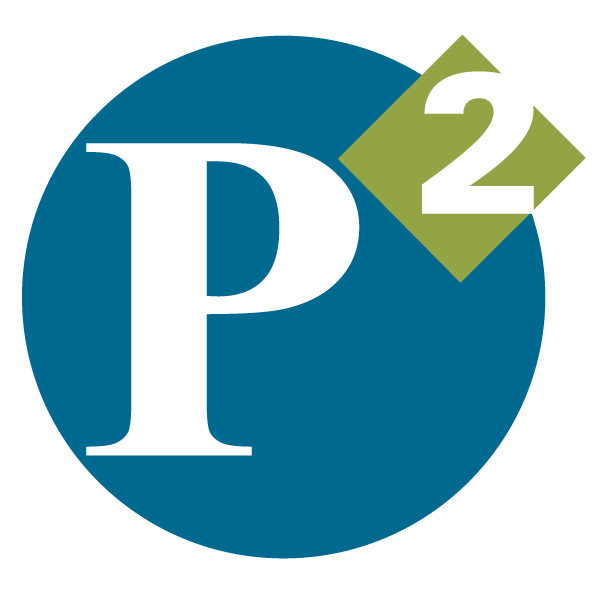NATIONAL POLLUTIOn pREVENTION rOUNDTABLE |
2022 MVP2 Awards
P2 Project/Program Award: B.C. Williams Bakery Service, Inc. (Dallas, TX)
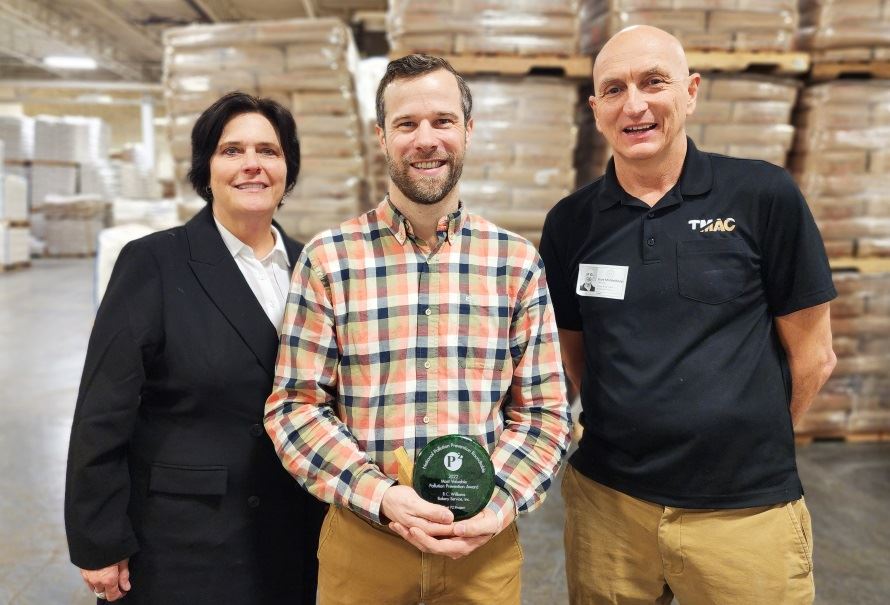 B.C. Williams Bakery Service, Inc. in Dallas, Texas maintains an extensive warehouse and trucking system with weekly deliveries to over 350 food operations in over 42 states.
B.C. Williams Bakery Service, Inc. in Dallas, Texas maintains an extensive warehouse and trucking system with weekly deliveries to over 350 food operations in over 42 states.
Shane Collins, Director of Operations, requested that TMAC review the sesame seed loading bag operations at their Dallas location. The existing method to keep the stacked bags from sliding during transportation required spraying a VOC adhesive that cured instantly and did not allow for bag re-repositioning or flexibility of re-stacking. In addition to added labor time to spray the adhesive, the tensile strength was so high that when customers removed bags from the pallet they would sometimes tear.
TMAC identified a hot melt glue that could be applied with a mobile spraying system specially designed to apply a thin layer of adhesive with FDA clearance for food contact across each stacked bag layer. The hot melt system performed well and enabled B.C. Williams Bakery Service to fully eliminate the spray on VOC adhesive. It also allowed stable pallet configurations to be maintained so that the product inventory could be stacked three high.
In addition, the extended hot melt glue curing time allowed operators to adjust bag placement if necessary, eliminating 1,100 damaged bags per year from tearing and reducing internal product losses by $38,000 annually. Bag tearing was also eliminated at customer facilities when removing the bags from the pallet. B.C. Williams Bakery Service operators were also excited to get rid of the spray adhesive which would now eliminate 1,850 empty cans and 1,446 pounds of spray adhesive from negatively impacting air quality.
P2 Project/Program Award: GlobalFoundries, Inc. (Malta, NY and Essex Junction, VT)
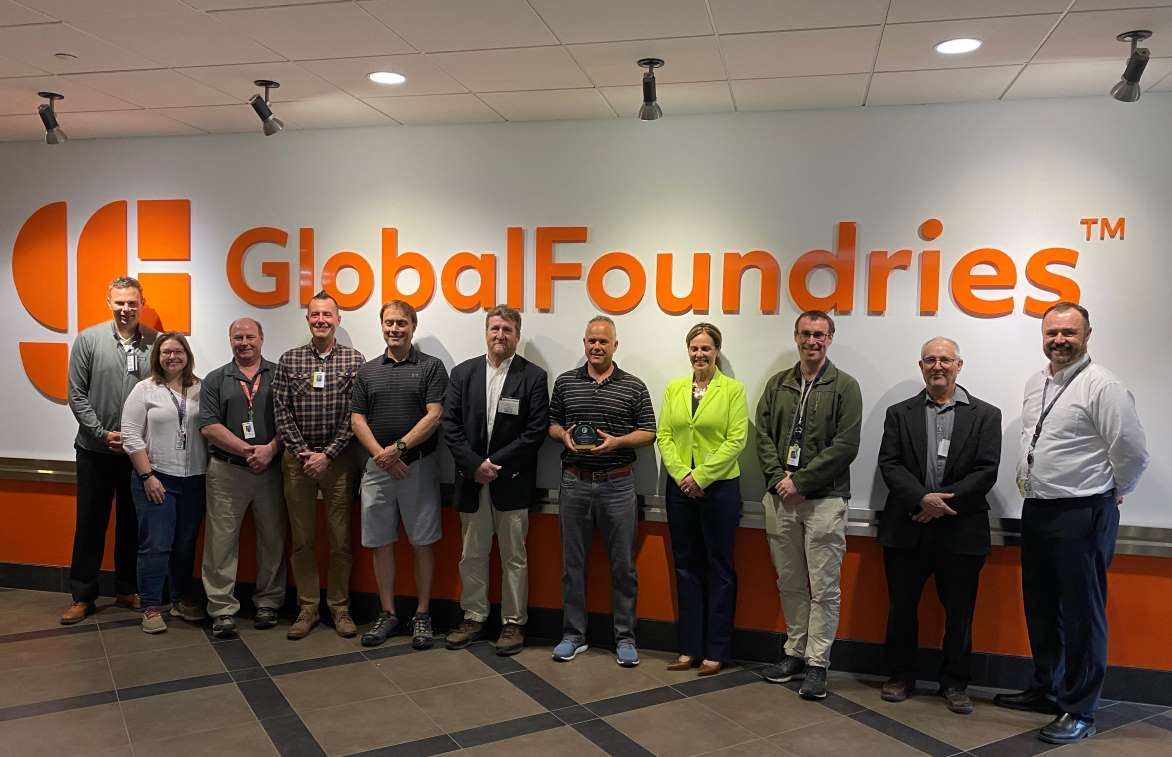
GlobalFoundries, Inc. of New York and Vermont, a previous winner of MVP2 awards, has continued its exceptional commitment to pollution prevention and provides the world with an example of how the principle of Continuous Improvement can bring benefits continuously, if integrated within all operations and everyone is engaged, if, in short, P2 is made a central ethic of production. Commitments to Environmental Health and Safety, Beyond Compliance goals, engagement with staff on a “Journey to Zero” using Key Performance Indicators and cross-team learning, as well as frequent engagement with regulatory authorities, has resulted in the elimination of about 30,000 gallons annually of reductions in slurry waste, ammonia discharges, and ethylene glycol use, with well over $1 million a year in the company’s Chemical-Mechanical Planarization (CMP) process, and the elimination of more than 70,000 liters of solvent use in the company’s photolithography process, with about $650,000 in annual savings.
The company was kind enough to share a great deal of information about how they achieved these reductions, generously providing detailed examples of how a highly technical production process can be further improved. See Appendix for a more detailed account (data shared with their permission). We honor GlobalFoundries for having a program of programs that continuously produces reductions of impacts. Their story demonstrates to other companies that being so dedicated, plant- and corporate-wide, so engaged with the community and its representatives in government agencies, and fully accepting the responsibility to make P2 part of ongoing business, is not just for ethical reasons, but it is a gift that keeps giving, keeps bringing savings and process improvements.
P2 Multimedia Award: Romac Industries, Inc. (Bothell, WA)

Frank Caddy, Josh Fowler, Kim Howard and Michael Johnson of Romac Industries, Inc., a steel fitting manufacturing facility in Bothell, WA, used lean and green manufacturing methods to decrease waste and wastewater generation on their passivation line -- improving product quality and consistency and increasing the safety of workers who use and clean the line. Their ammonium bi-fluoride passivation process surface finishes stainless steel parts and involves a series of four immersion process tanks, two immersion rinses, and a high-pressure rinse.
Historically, draining the entire spent process and rinse tanks generated hazardous waste (spent acid containing ammonia, fluorine, chromium, and nickel) and wastewater (sent to the POTW). Assisted by Lean Environment, Inc. and Impact Washington to analyze the process and their options, Romac extended the passivation tank life, reducing and ultimately eliminating the need to drain the entire baths. First, Romac used counter-current flow to bring acid solutions back to the process tank and keep rinse tank acid concentrations low. They then installed an ion exchange system to allow consistent water quality throughout the process. Finally, acid distillation is planned for recovery and reuse of nitric acid and automated the rack transfers.
For 2021, Romac cut spent acid waste and toxic wastewaters from 64,000 to 30,000 pounds, saving about $50,000 per year, and saw substantial improvements in product quality and process control. In 2022 and future years, the new process will provide an over 90% reduction in hazardous acid waste and toxic wastewaters, a 200% increase in line capacity, $100,000 per year in savings, and significantly improve the safety and ease of work procedures for operators, as well as a reduction in energy use.
Ken Zarker Memorial P2 Champion Award: Rachel Massey
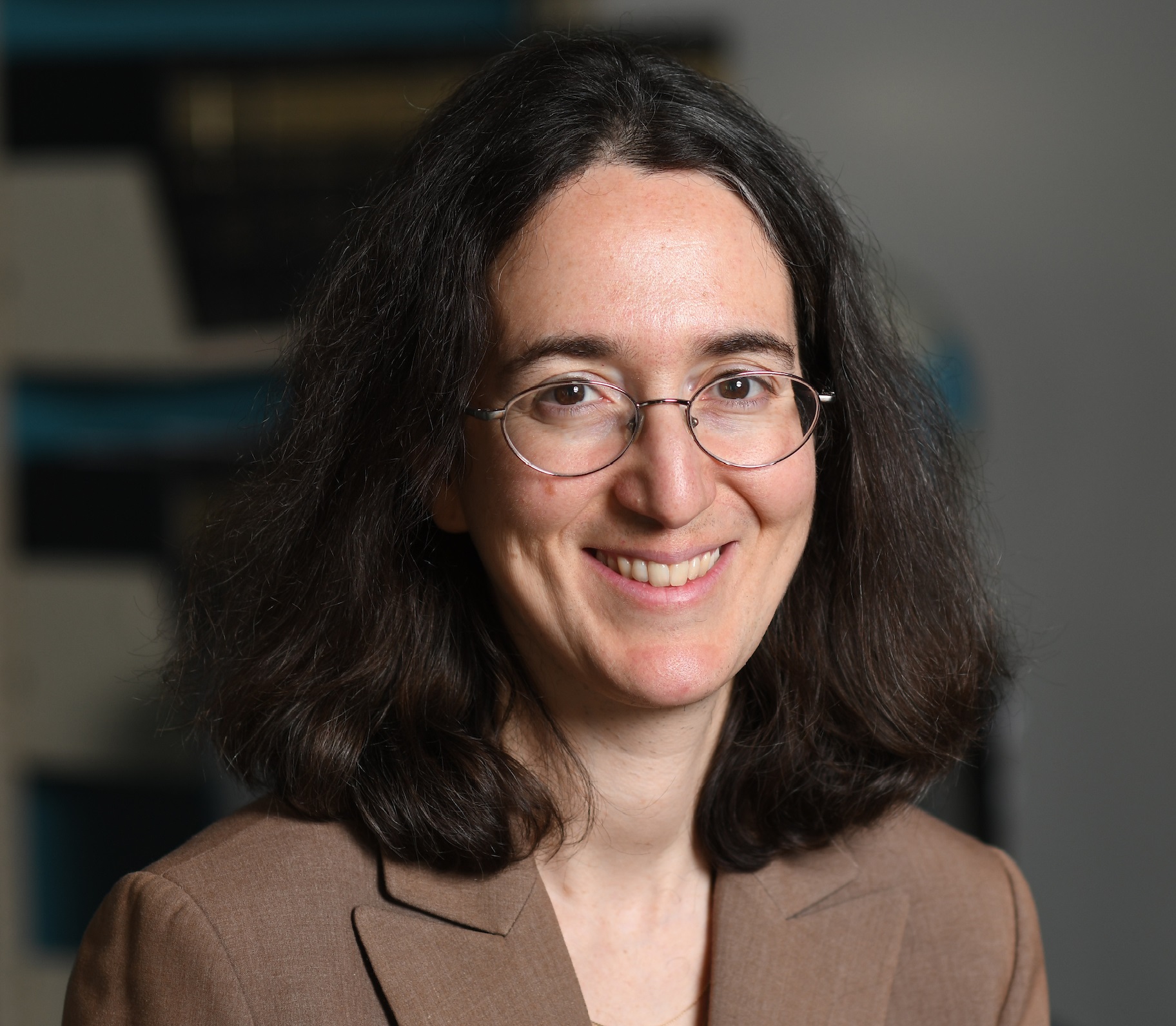
Rachel Massey currently works as Senior Associate Director and Senior Policy Analyst at the Toxics Use Reduction Institute at the University of Massachusetts Lowell. Her project areas include analyzing the implications of chemical policy changes for businesses and communities, identifying opportunities to reduce toxic chemical use in individual sectors, applying the lessons of the Toxics Use Reduction Act program to chemicals policy development nationally and internationally, and analyzing opportunities for reducing toxic chemicals in products. Her work ranges in scope from leading international projects with the United Nations Environment Program to working closely with grassroots organizations addressing toxics at the local level.
In her work with community organizations, she works continually to build capacity and support the initiatives of those addressing toxics in everyday life. In this role, she is being particularly noted for her recent work in fostering the work of the Nantucket PFAS Action Group to reduce the use of PFAS in firefighters’ turnout gear. This grassroots effort has helped initiate national progress in protecting firefighters’ health through reducing exposure to PFAS. We honor her for her work this year, noting that it is no different from the many other years that Rachel has devoted to the task of making the world safer.
https://www.pfasfreeppe.com/study
Fred Granek Memorial P2 Ambassador Award: Joy Scrogum
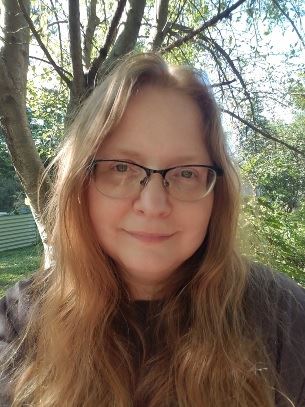
In both her professional and personal life, Joy Scrogum, an assistant sustainability scientist with the Illinois Sustainable Technology Center (ISTC), is an untiring ambassador for pollution prevention at the local, regional, national, and international levels by sharing information, ideas, and technologies that avoid, eliminate, and reduce waste. Just a few of these include:
- Joy developed the idea, found campus partners, and successfully applied for seed funding for the Illini Gadget Garage, a collaborative repair center for student- and staff-owned electronic devices at the University of Illinois. As of December 2018, the Gadget Garage had diverted a total of 905.2 lbs. of materials from the waste stream through repair and special materials recycling.
- Managed the International Sustainable Electronics Competition , a student design competition that encouraged students to consider sustainability throughout the product lifecycle when designing electronics, as well as ways to reuse scrap electronic components in new products. (https://www.ideals.illinois.edu/handle/2142/15064)
- Developed and ran the Green Lunchroom Challenge, a voluntary pledge program for schools to improve the sustainability of their food service operations, which was funded by a grant from U.S. EPA. Although the project is no longer funded, Joy still maintains a web archive for the project and a blog on related issues (https://green-lunchroom.istc.illinois.edu/k-12-schools/).
- Collaborated with the University of Illinois College of Engineering by developing and teaching a class entitled "Sustainable Technology: Environmental & Social Impacts of Innovations."
- Developed and taught a course on reuse as a sustainability strategy for the Osher Lifelong Learning Institute at the University of Illinois (https://olli.illinois.edu/).
- Facilitated networking and information sharing among P2 technical assistance providers at both the regional and national levels through her work with the Great Lakes Regional Pollution Prevention Roundtable and the Pollution Prevention Resource Exchange.
In addition to her work at ISTC, Joy has advocated for pollution prevention through her volunteer work with several community organizations.
P2 Student Award: Jonathan Arentsen
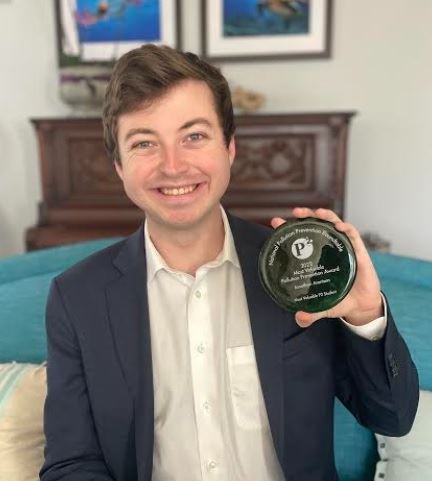
Jonathan Arentsen examined the 2017 Emergency Planning and Community Right to Know Act hazardous substance and the 2016 Toxic Substances Control Act Chemical Data Reporting. He charted general trends in the utilization of phenolic compounds and identified seeming inconsistencies in submitted reports. Jonathan presented his findings to staff at the Toxics Use Reduction Institute, who commented that it raised their attention to the need to further explore the use of TSCA data, and that it provided strong indications of the need to take a closer look at phenolic compounds. The project’s results are being shared with EPA as well. https://www.bu.edu/rccp/files/2022/01/Phenol-Final-Paper.pdf
P2 Educator Award: Carl Cranor
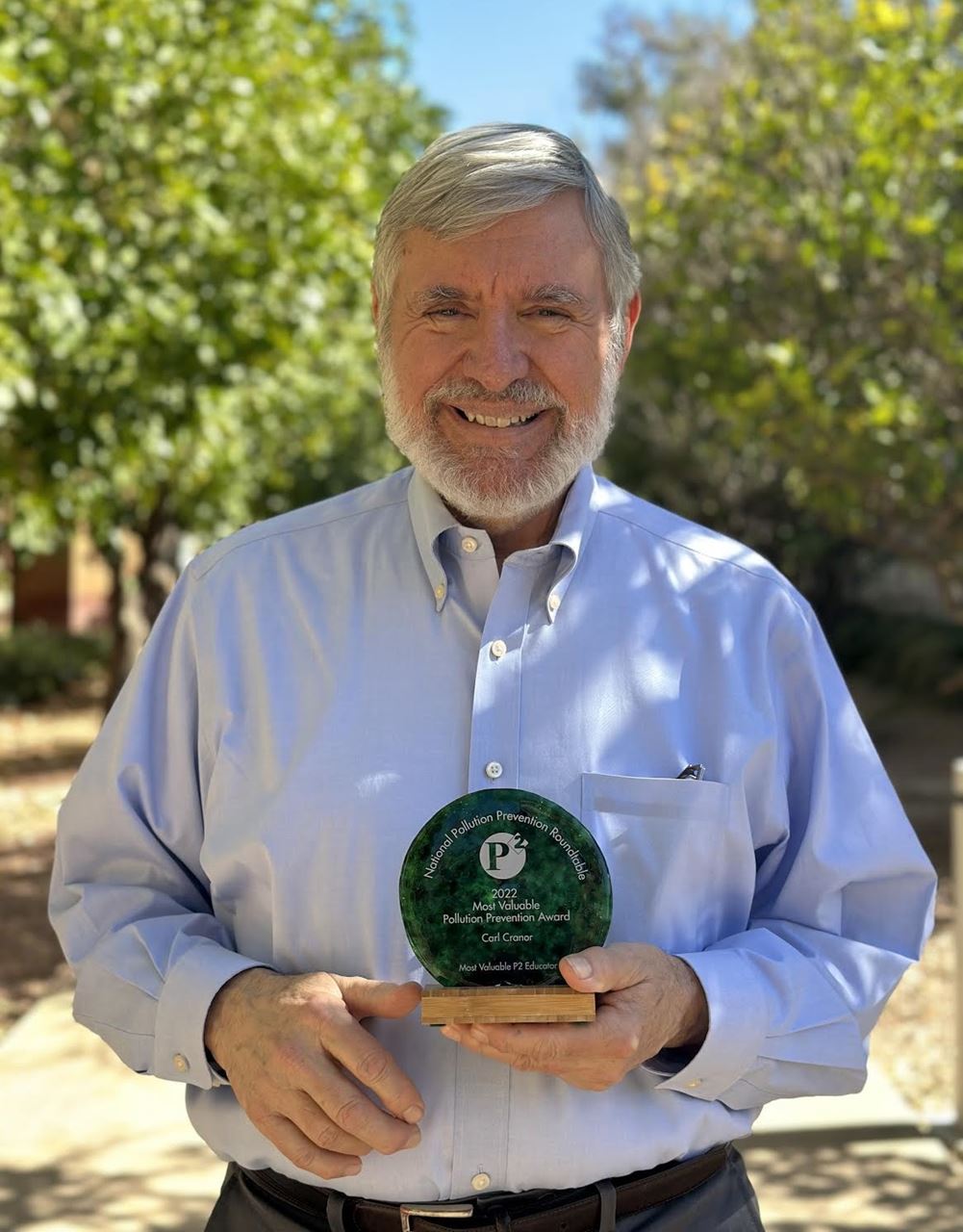
Carl Cranor, Distinguished Professor of Philosophy at the University of California Riverside, has vastly improved the possibility of our understanding toxics by explaining the relevant law so that any thoughtful citizen can understand it. His writing shows a better way: using law to effectively respond to the fact of their existence in our environments. His unique and powerful 2011 book Legally Poisoned provided the legal context for the situation in which we find ourselves: a world in which toxics can be rather freely inserted. For those interested in pollution prevention, a basic orientation in the law is necessary and is best absorbed without rant, irrelevance or positioning. Carl’s straightforward accounts are clear and accessible to any interested thinker. In addition to his 2017 Tragic Failures: How and Why We are Harmed by Toxic Chemicals, his books and reports on toxic torts, carcinogens, and valuing health have been complemented by service on national advisory committees, and have placed the technical issues that so often dominate and distract in the very real human contexts of morality and justice. We honor him for bringing this necessary, broad view to the national conversation on toxics, where it is so sorely needed, and is the underlying driver for progress in pollution prevention, where it has been brought to living force.
